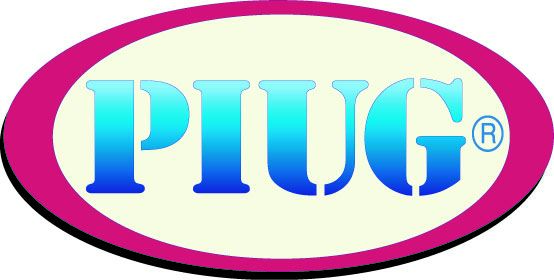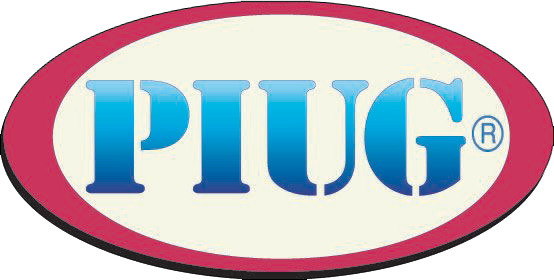"Integrating Patent Analysis with R&D and Business Analyses to Forecast Innovation Prospects: Nano-enhanced Solar Cells" 
We have conducted a series of analyses on advanced photovoltaics (solar cells) that take advantage of particular nanotechnology enhancements. In this presentation we present selected results to demonstrate how these analytical tools can reinforce each other. We offer a 10-step framework that combines empirical analyses with expert opinion to generate technical intelligence. "Cross-charting" links findings about emerging technological capabilities to functional gains, and thence to likely applications. We illustrate using Web of Science, Derwent World Patent Index, and Factiva data mining and profiling collectively. We also share new results in "patent mapping." These further help relate patent activity patterns to potential applications. Lastly, we share the resulting projections of promising "innovation pathways," with indications of key players and leverage points.
Alan L. Porter
Technology Policy & Assessment Center, Georgia Tech
Search Technology, Inc.
www.searchtech.com
aporter @ searchtech.com
Ying Guo
Technology Policy & Assessment Center, Georgia Tech
Lab for Data Analysis & Knowledge Management, Beijing Institute of Technology
Biographies:
Alan Porter is Director of R&D for Search Technology, Inc., Norcross, GA. He is also Professor Emeritus of Industrial & Systems Engineering, and of Public Policy, at Georgia Tech, where he remains Co-director of the Technology Policy and Assessment Center. He is author of some 220 articles and books, including Tech Mining (Wiley, 2005). Current research emphasizes research profiling, innovation indicators, science mapping, and forecasting of emerging technology innovation pathways.
Ying Guo is a PhD student at Beijing Institute of Technology, working on patent and related "emerging technology" analyses. She visited at Georgia Tech for a year during which time this research was developed together.
"Your Patent May Be Valuable but How Much is it Worth?" 
IP in general and patents in particular are becoming a more widely traded asset class in the financial world. The formation of an IP marketplace has been a long time in coming but now seems to be establishing a dedicated following who believe that a sustainable asset class can be made from these properties. In this session we will talk about the emerging IP marketplace and the organizations that have been responsible for making it happen. There will also be a discussion of IP valuation methods that are used to establish the worth of these properties under real life conditions. Some practical examples will be given based on our experience brokering IP transactions at 3LP Advisors.
Anthony Trippe
Director, IP Analytics - 3LP Advisors
tony @ trippe.com or anthony.trippe @ 3lpadvisors.com
Biography:
Anthony (Tony) Trippe is currently Director of IP Analytics at 3LP Advisors. 3LP's approach bridges the traditional disciplines of intellectual property, business strategy, and investment advisory. We apply proprietary tools, methods and know-how based on our experience over many years to design and execute transactions involving IP assets. Before joining 3LP Tony worked at CAS helping to establish Science IP as the premier chemical patent searching firm for the IP Law Firm community. Also at CAS he was the lead requirements developer for STN Analyze Plus, STN AnaVist and SubScape for SciFinder. Tony has also worked at several pharmaceutical companies.
"How to use Inherent Anticipation to Break a Patent" 
Recent decisions by the Court of Appeals for the Federal Circuit have broadened the scope of inherent anticipation and opened a new line of attack for people seeking to invalidate pharmaceutical patents. In this talk, I'll briefly discuss the relevant Federal Circuit decisions and how to take advantage of them. Examples of successful inherent anticipation searches will be shown, along with search strategies to uncover inherent anticipation references.
David M. Gange, Ph.D.
Chemistry Patent Search
www.chemistrypatentsearch.com
davidgange @ chemistrypatentsearch.com
Biography:
For over twenty years David Gange has worked in the areas of chemical information management, chemistry searching, and patent searching. He is the author of more than thirty patents and publications, and in 2007 was awarded U.S. Patent 7,251,643 for a new method of chemical database searching. His clients include law firms, chemical companies, pharmaceutical companies, and biotech companies. David's searching specialties include pharmaceuticals, small molecules, and medical devices. Past projects include novelty searching, competitive intelligence, M & A due diligence, infringement analysis, and state-of-the-art surveys.
David received his Bachelor of Science with Honors in Chemistry from Tulane University. After graduating from Tulane, he went on to receive a Ph.D. in organic synthesis from The Ohio State University and completed postdoctoral studies at Columbia University.
David is a Registered Patent Agent and a member of the American Chemical Society, the Association of Independent Information Professionals, the Chemical Consultants Network, the National Association of Patent Practitioners, the New Jersey Intellectual Property Law Association, and the Patent Information Users Group.
"Patents in Business Development" 
One set of business activities falling into the term "business development" involves one corporation acquiring or licensing a product from another entity. Typically, the company acquiring the asset has greater capability to market the product than the entity that originally developed the product. For a business development opportunity involving a product requiring substantial investment to develop and market, the intellectual property related to the product can significantly affect the economics, and ultimately the viability, of the deal. We will provide an overview of how this type of high-tech business development activity works, with an emphasis on the use of patent information in the process, using examples drawn from pharmaceutical and medical device business development projects.
James C. Calkins
Sanofi-Aventis
James.Calkins@sanofi-aventis.com
Biography:
James Calkins is a Group Patent Counsel and Associate Vice President in Business Development Patent Support for sanofi-aventis U.S. Jim provides intellectual property legal support for sanofi-aventis' global business development activities, with a primary focus in medical device and small molecule opportunities. Mr. Calkins has experience in IP litigation and transactional law, a blend of law firm and in-house experience, and is a former law clerk of Circuit Judge Giles Rich at the U.S. Court of Appeals for the Federal Circuit. Jim was an engineer in the chemical industry for almost 15 years, mostly in chemical plant design and construction. He has a bachelors degree in chemical engineering from the University of Michigan (with professional engineer certification), and juris doctor and LLM (intellectual property) degrees from Franklin Pierce Law Center (now the University of New Hampshire School of Law).
"Freedom to Operate; Some Best Practices " 
There is no routine patent search that we do that is more important than Freedom to Operate. This talk will summarize some tips for preparing and organizing your search, refining it, collecting the results, and following up on them to minimize the chances of unpleasant surprises in the future.
Donald Walter, Ph.D.
Product Specialist
Thomson Reuters
www.thomsonreuters.com
don.walter @ thomsonreuters.com
Biography:
"Patent Search Report Documentation: Quality Checklist" 
Delivered from the perspective of a pharmaceutical patent information specialist, this presentation will review a quality checklist for creating outstanding patent search reports. Keeping your customers (researchers, patent attorneys, or the CEO) happy elevates your standing within the organization. While no size fits all, these checklist items will be of interest to most. Items on the checklist include:
- How to document the search, including descriptions of the databases searched and date information
- Links to the full text for easy client access
- Ways to compare and contrast relevant text within patent records for grants, applications and key family members
- The importance of elaborations or factual definitions of ambiguous items within key text
Matt Fornwalt
STN
Columbus, OH
mfornwalt @ cas.org
Biography:
A former information lead for the Scientific and Patent Information group at Johnson & Johnson, Matt Fornwalt is currently working under contract as a STN business analyst for CAS. In his 12 years at J&J, Matt initially worked in internal chemical registration and provided support for various end-user tools. His subsequent years as an analyst and senior analyst at J&J led to his most recent position as information lead. Matt is a graduate of Penn State University where he earned a B.S. degree in chemistry. He has been a member of PIUG and ACS-CINF for 10 years.
"Expanding the Scope of Structure Searches" 
Chemical structure searching can be challenging. The most common question in a searchers mind: "Is my search comprehensive?" The last scenario we want is our client coming back to us with the dreaded question "why did you miss this?" This paper will discuss thoughts and show examples on expanding the scope of structure searches. One approach, commonly used by patent offices, is searching a broad "core" structure in relation to an indication (e.g. thyroid cancer) and/or a mechanism of action (MoA) (e.g. PDE5 inhibitors). Other aspects to be discussed include patent citation searching of relevant references, the use of pipeline databases and inventor/MoA searches. Even if these additional search techniques do not provide any further references, at least a searcher can feel more confident in the comprehensiveness of their report and that they have decreased the chances of missing relevant art.
Kimberly Miller
Patent Analyst
NIBR Search and Analytics Team
Novartis Institutes for BioMedical Research
Cambridge, MA USA
kimberly.miller @ novartis.com
Biography:
Kim Miller has a degree in chemistry from Western New England College. She began her chemistry searching career in 1997 and has been with Novartis since 2007. She has performed numerous patentability and FTO searches for patent attorneys and research scientists. In addition to these duties, Kim is currently involved in development and presentation of patent information classes for chemical scientist at Novartis.
"All About Biofuels: Patent Activity And Retrieval Strategies For Bioethanol, Biodiesel And Renewable Diesel in US Patents" 
Susan Taylor
Customer Support Specialist
IFI Patent Intelligence
Wolters Kluwer
Susan.Taylor @ wolterskluwer.com
Biography:
With so much focus being made on biofuels due to government regulations as well as interest in renewable and sustainable fuels due to gas price volatility, interest in IP around this area is high. In this presentation, I will focus on the following biofuel technology areas:
- Bioethanol
- Biodiesel
- Renewable diesel
Patent search strategies for these three biofuel areas will be reviewed, including use of free text, US & IPC class codes where biofuels are commonly found, and tips for using indexing databases such as IFI's to save time and to find pertinent records. Highlights of the presentation will include:
 Search
Search Community
Community Job Board
Job Board
